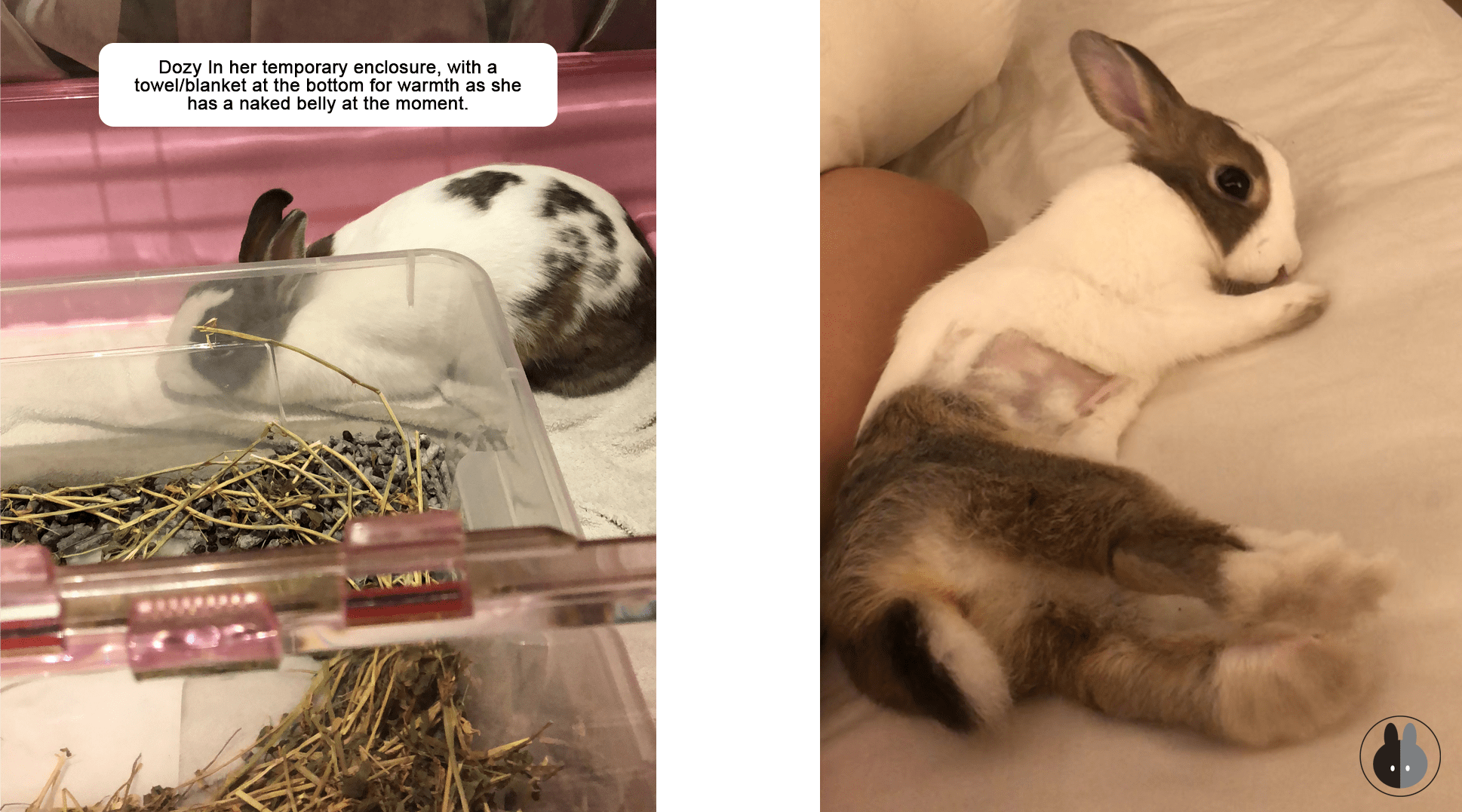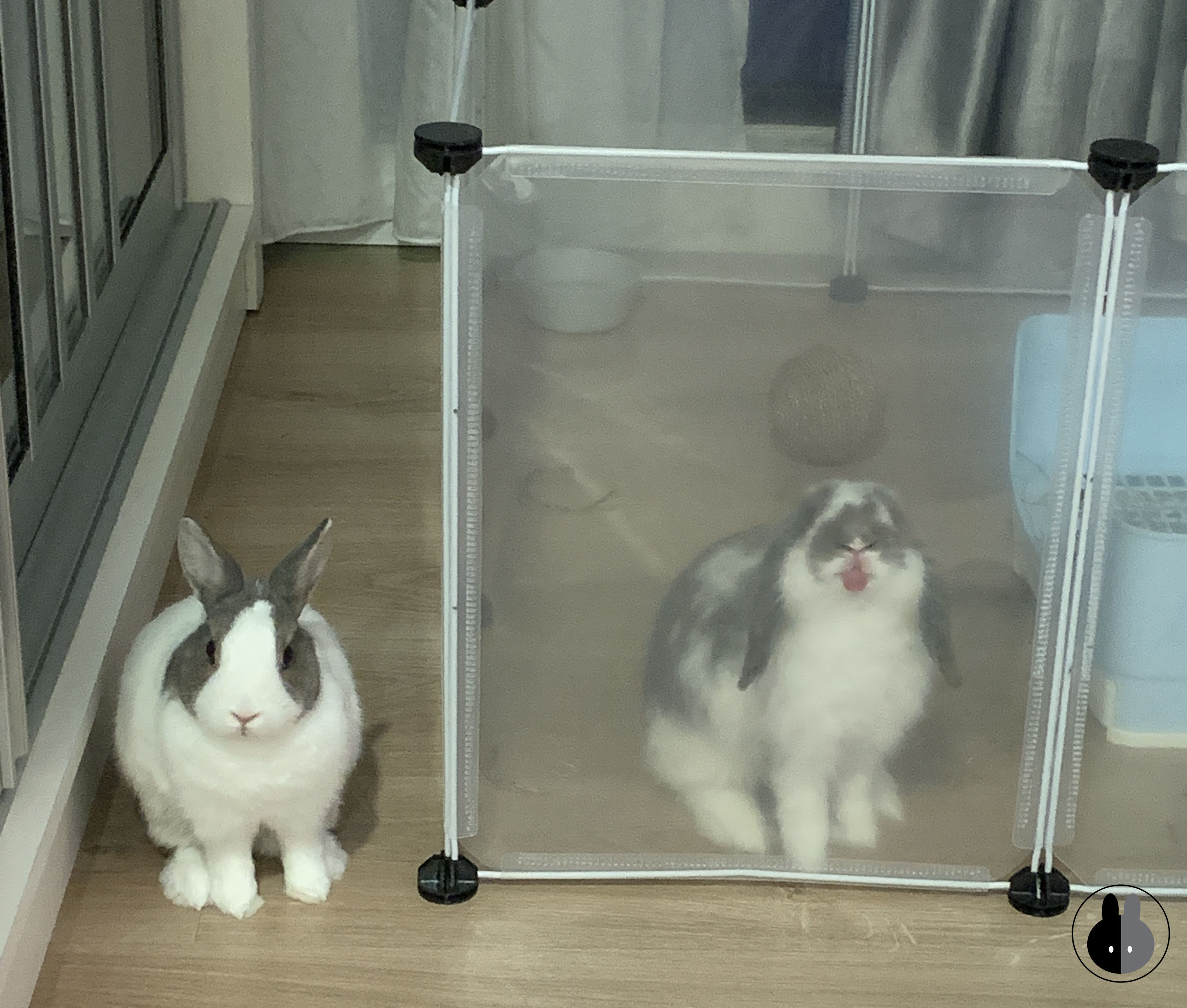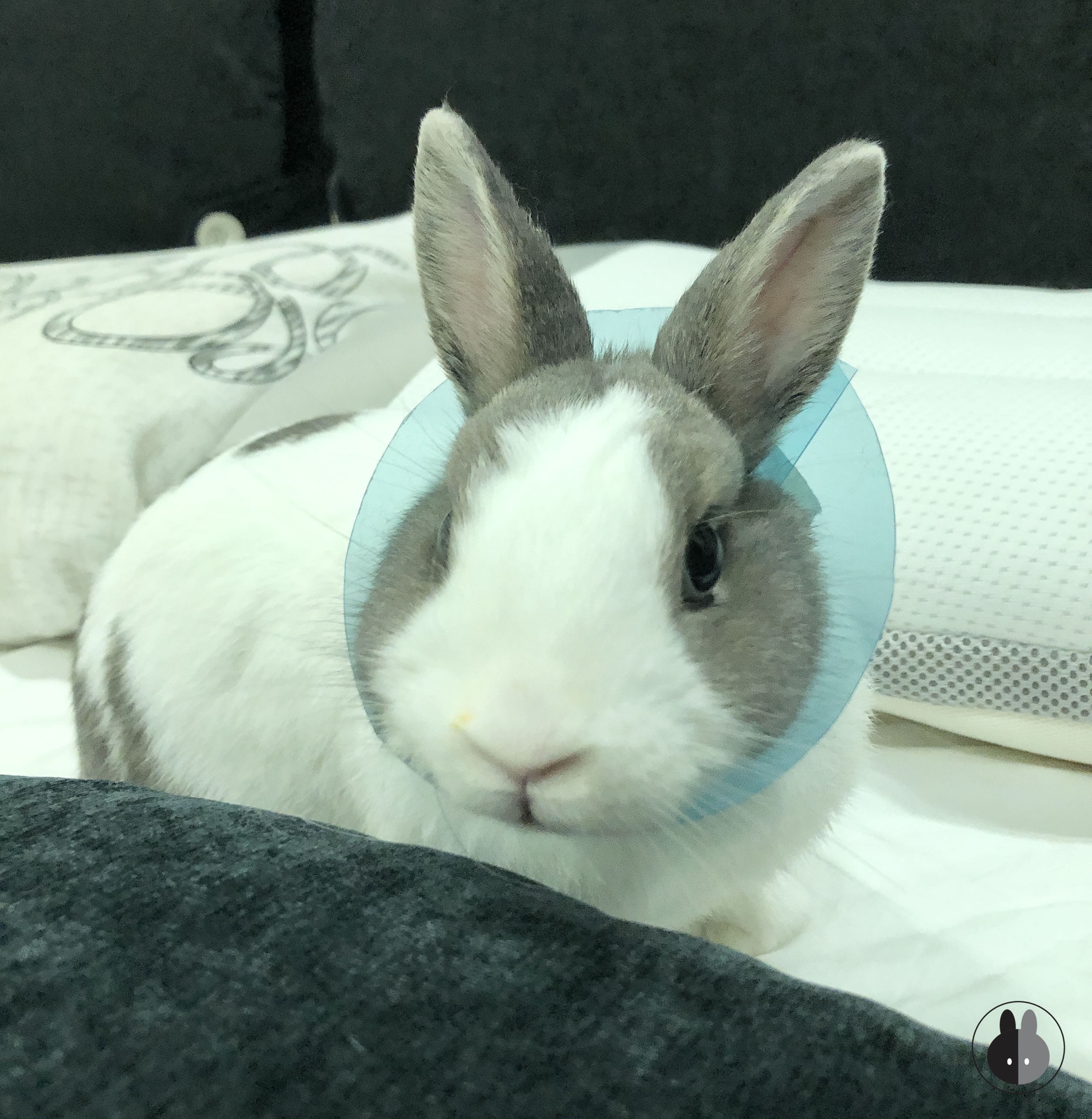How to care for your rabbit after neutering?
Caring for your rabbit after neutering (also known as post-operative care) is simple but also very important. The way you care for your bunny after neutering will most likely be the deciding factor in whether your bunny lives or dies. If you have done the necessary preparation for your bunny’s pre-surgery, they should be in a better condition going through the post-recovery.
Most of the death surrounding rabbit neutering doesn’t come from the surgery but rather, from the way the owner takes care of their bunny after the surgery. Negligence and bad practices usually cause your already weaken rabbit to succumb to its injury.
The secret to a smooth recovery for your bunny after neutering is by paying close attention to your bunny and catching signs of infections and problems early on. We will discuss some practices you can adopt to ensure your rabbit gets a smooth recovery!
What you should do after neutering your rabbit
In this section, we will discuss on some of the good practices that you can do after neutering your bunny.
1. Minimize your rabbit’s movement
Minimizing your rabbit’s movement is very important after the surgery. The term “Neutering” is the procedure of removing your rabbit’s reproductive organ and this procedure involves cutting into the bunny. Cutting into the rabbit will lead to stitching the surgery spot and movement may cause the stitches to open up. An open stitch is very dangerous as it can cause bleeding and bacteria infection.

To minimize your bunny’s movement. we recommend enclosing your bunny in a mini playpen. You can use an entire playpen that props up or those DIY playpens where you can build it to whatever size you want by connecting the joints.
Cages are not recommended as the area is too small for rabbits. Cages also carry the risk of bacteria infection as your bunny may rest on their urine and poop. We don’t recommend using a cage but if that is all you have access to then it is better than nothing. You will have to check constantly and clean up after their urine.
2. Provide unlimited hay and water while monitoring their intake
GI Stasis develops when the rabbit stops eating for an extended period. Providing your bunny unlimited access to fresh hay and clean water after their surgery is recommended. Treats are not recommended after surgery but can be given in small amounts if your rabbit is completely inappetent.
It is normal for your rabbit to feel inappetence after the surgery. You must monitor to ensure that your rabbit eats a minimal amount and not completely nothing. However, if your bunny is not eating after 12 hours of surgery, you should call your veterinarian immediately.
3. Clean your rabbit’s playpen area regularly
[[## figcaption="Chewy in his confinement post-surgery" ##]]
After neutering your bunny, always try your best to clean up after them regularly. The neutering procedure leaves your bunny’s stomach area vulnerable to bacterial infections. If your rabbit’s area is damp from your bunny’s urine, the risk of your rabbit getting an infection is very high.
Based on our experience when speaking to bunny owners who lost their bunny to neutering, we notice that this is the main cause of death. Rabbit owners who don’t clean up after their bunny regularly before the neutering surgery have a higher risk of losing their bunny after the surgery.
Many rabbit owners neglect to keep their rabbit’s area clean and this is a very bad practice. It’s best if you provide your rabbit with a litter box setup that has a dual compartment. Dual compartment litter boxes can filter the urine and poop thus, making the overall area more hygienic. If your bunny is not potty trained, you may want to read up on a short write-up from us regarding potty training your bunny!
4. Monitor your bunny’s poop
Rabbit’s poop can tell you a lot about their health. You should always be monitoring your rabbit’s poop even when it is not related to surgery. Monitoring your bunny’s poop after surgery helps you determine whether your bunny is recovering well after the surgery.
You should expect your rabbit to poop less and have smaller poop about 24 hours after surgery. During this timeframe, your bunny is still recovering and most likely won’t be eating as much. Less food going through their intestine means smaller and lesser poop. As they start to regain their appetite, their poop should be going back to normal after 24 hours.
If you notice your bunny is having diarrhea or when there is mucous in its poop, you should inform your veterinarian immediately. Sometimes after neutering, your bunny may experience poop irregularity. However, diarrhea is something that your bunny shouldn’t be having!
5. Avoid carrying your bunny
Carrying your bunny after their neutering surgery is not recommended unless it is necessary. The wrong method of carrying or being too aggressive when attempting to carry the bunny may open up its surgery stitches.
Leave your bunny in its playpen to recover and leave the cuddling to when they get better. The wrong method of carrying will stress your bunny out and this unnecessary stress can delay its recovery time. You can start carrying your bunny after their stitches are removed from the vet or when your veterinarian gives the green light!
6. Separate your bunny from other rabbits
If you have other rabbits in the house, it’s best to separate your neutered bunny from the others. Isolating the rabbit minimizes the risk of an open wound as rabbits tend to fight and disturb each other. Especially after neutering as some rabbits behave differently after neutering.

[[## figcaption="Dozy and Chewy separated by playpen" ##]]
This includes bonded rabbits as bonded rabbits may exhibit behavioral changes after neutering. It is recommended to re-introduce your bunnies to each other after the neutered bunny is fully recovered. Usually 4 to 6 weeks after neutering is ideal.
Common problems to watch out for after neutering your rabbit
Sometimes even with proper pre-operative care and post-operative care, your rabbit may encounter problems that are beyond your control. Some of these problems can be solved at home while some may require immediate veterinarian attention.
1. Bleeding
When you start seeing spots of blood around your bunny’s playpen or area, you should start finding out if its stitches got broken. The stitches can be broken when your bunny makes any sudden big movement. if you discovered that your bunny’s stitches are open, put on a cone for your bunny immediately.

[[## figcaption="Dozy wearing her plastic cone post-surgery" ##]]
If you don’t have a cone available for your bunny, you can use paper or soft plastic to make a temporary makeshift cone for your bunny. Make sure the cone does not have sharp edges as it may cut your bunny’s neck.
After putting on a cone, you should call your veterinarian immediately and inform them of the situation. If possible, bring your bunny to the vet on the same day to review the stitches. The sooner you can determine the cause of the blood spot, the better the chance of survival for your bunny. An open stitch can cause bacterial infection and that is way trickier to deal with.
2. Rabbit not eating after 24 hours
Although every rabbit has a different recovery rate, 24 hours of not eating is dangerous to all rabbits. It causes them to be prone to GI Stasis or they might be having some underlying issues which cause their appetite to not come back.
[[## figcaption="Dozy bun-rrito wrapped for forced feeding" ##]]
If you know how to force-feed, you can attempt to force-feed some critical care (oxbow) to your bunny to help him keep his intestine moving. Be sure to check the instruction on how to prepare the critical care before force-feeding. It is also important to use a small syringe (not more than 10ml) as a larger syringe may produce an output of liquid that is too fast for your bunny.
You should also inform your veterinarian and check with them if you need to bring your bunny in as it is not eating after 24 hours.
Conclusion
To sum it up, taking care of your bunny after neutering is not challenging and should be completely stress-free. Many of the practices mentioned here are good practices that you can apply to rabbit keeping.
For example, keeping your bunny area clean and making sure your bunny has unlimited access to hay and water for the whole day. These 2 practices are good and contribute to the quality of life for your rabbit.
